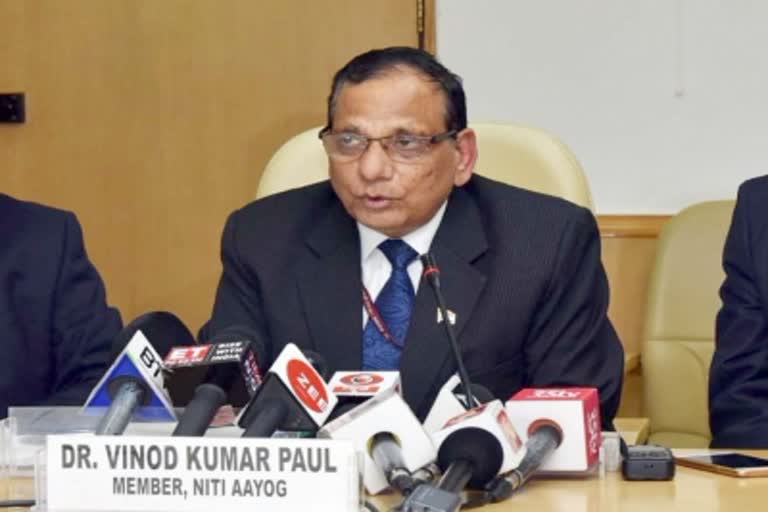New Delhi: V.K. Paul, Member (Health), NITI Aayog, said on Tuesday that the decision to reopen schools has to be taken very cautiously. Addressing the Union Health Ministry's media briefing on Covid, Paul said, "The decision (to reopen schools) has to be taken cautiously. We should take risks only when we are protected. Schools are places of large gatherings, which give the virus the opportunity to infect.
"So we should take that risk only when we are better protected when the virus is suppressed and we are able to sit at a distance. It is not easy to take this decision to reopen schools when an unpredictable situation is prevailing in the society." He said that the virus is suppressed at present due to the discipline and restrictions that are prevalent in many states. If we ease all restrictions and open schools, the virus will get the opportunity to infect people, Paul said.
Explaining the reasons behind the emergence of new waves of the pandemic and how they can be controlled, Paul said, "There are countries where even the second wave has not occurred. If we do what is required and do not indulge in irresponsible behaviour, then an outbreak should not occur. This is a simple epidemiological principle." Talking about the new waves, Paul explained that there are four elements that lead to the formation of a new wave -- behaviour of the virus, susceptible host, transmissibility and opportunity.
Read: It's time India should ramp up its health infrastructure: Experts
"Out of the above four, two elements -- susceptibility and opportunities for infection -- are totally under our control, whereas the other two -- the behaviour of the virus and transmissibility -- cannot be predicted or controlled. So, if we are protected and ensure that we are not susceptible, the virus will not be able to survive," he said. "We can control the susceptibility by wearing a mask or by getting vaccinated. Hence, if we decrease the opportunities for the virus by following all the Covid appropriate behaviours and decrease susceptibility to the infection, a third wave will not occur," Paul added.
He also called for collective efforts of the citizens as well as the system in order to prevent another wave. "Some of these require individual efforts, while some others such as isolation of clusters, contact tracing, ensuring testing capacity and building awareness requires the system to act," he said.
(IANS)



